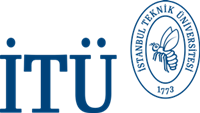 Click for detailed student count.
Click for detailed student count.
 Registration Requirements
Registration Requirements
Admission is carried out in accordance with Article 4 of the Istanbul Technical University Double Degree International Joint Undergraduate Programs Education and Training Regulation.
Click here for the relevant regulation.
 Program Fees
Program Fees
 YKS Quotas, Student Success Ranking, Minimum and Maximum Scores for the Last Five Years
YKS Quotas, Student Success Ranking, Minimum and Maximum Scores for the Last Five Years
 English Proficiency
English Proficiency
 Regulations and Guidelines
Regulations and Guidelines
 Academic Calendar
Academic Calendar
 Course Plans, Prerequisites and Course Equivalence
Course Plans, Prerequisites and Course Equivalence
 Course Information
Course Information
 Course Schedules
Course Schedules
 Course Adjustment and Exemption Procedures
Course Adjustment and Exemption Procedures
 Program Educational Objectives
Program Educational Objectives
The Naval Architecture and Marine Mechanical Engineering Undergraduate Joint Program aims to have graduates who have a strong engineering background and are competent in written and oral presentation skills, and can use modern engineering tools. The educational objectives of the program in this context are:
PEO1: To gain the skills of design and production of marine vehicles and complex systems
PEO2: Being open to lifelong learning
PEO3: Ability to work effectively in local and international team environments
PEO4: To gain effective working skills using contemporary engineering tools
PEO5: Gaining professional experience in the maritime industry and enrolling in postgraduate education
 Measurement and Evaluation
Measurement and Evaluation
Student success is evaluated in consideration of Articles 20, 21, 22, 23, 24, and 25 of the Istanbul Technical University Undergraduate Education and Training Regulation.
Click here for the relevant regulation.
 Internship
Internship
This program 45 days contains mandatory intership.
 Graduation Requirements
Graduation Requirements
Graduation procedures are carried out in accordance with Article 20 of the Istanbul Technical University Double Degree International Joint Undergraduate Programs Education and Training Regulation.
Click here for the relevant regulation.
 The Awarded Degree and Title
The Awarded Degree and Title
Degree : Bachelor of Science Title : Naval Architecture and Marine Engineering
 Program Employment Opportunities
Program Employment Opportunities
Students who graduate from this program will be able to have job opportunities in both countries. Our graduates are employed in ship and yacht shipyards, design offices, ship supply industry companies, classification and insurance companies. In addition, our graduates can also work in ports and businesses affiliated to the Ministry of Transport and Infrastructure in Turkey.
 Number of Graduates
Number of Graduates
There are no graduates from 2025 or earlier. The 2026 graduate numbers have not yet been transferred to this page.
 Program Outcomes
Program Outcomes
P.O.1 Ability to identify, formulate, and solve complex engineering problems by applying engineering, science, and mathematical principles
P.O.2 Ability to apply engineering design to produce solutions that meet the desired requirements, taking into account public health, safety and welfare and global, cultural, social, environmental and economic factors
P.O.3 Ability to communicate effectively with diverse audiences
P.O.4 Ability to recognize ethical and professional responsibilities in engineering and make informed decisions considering the impact of engineering solutions in global, economic, environmental and societal contexts
P.O.5 Ability to work effectively in a team whose members are leaders who create a collaborative and inclusive environment, set goals, plan tasks, and achieve goals
P.O.6 Ability to develop and conduct appropriate experiments, analyze and interpret data, and draw conclusions using engineering judgment
P.O.7 Ability to acquire and apply new knowledge when necessary, using appropriate learning strategies
P.O.8 Ability to apply fundamental knowledge of fluid mechanics, structural mechanics, material properties and energy/propulsion systems in the context of marine vessels
 Higher Education Program Atlas
Higher Education Program Atlas
 Turkish Qualifications Database
Turkish Qualifications Database
The qualification has not yet been incorporated into the TYÇ.
 Program Coordinator
Program Coordinator
Click for detailed student count.
